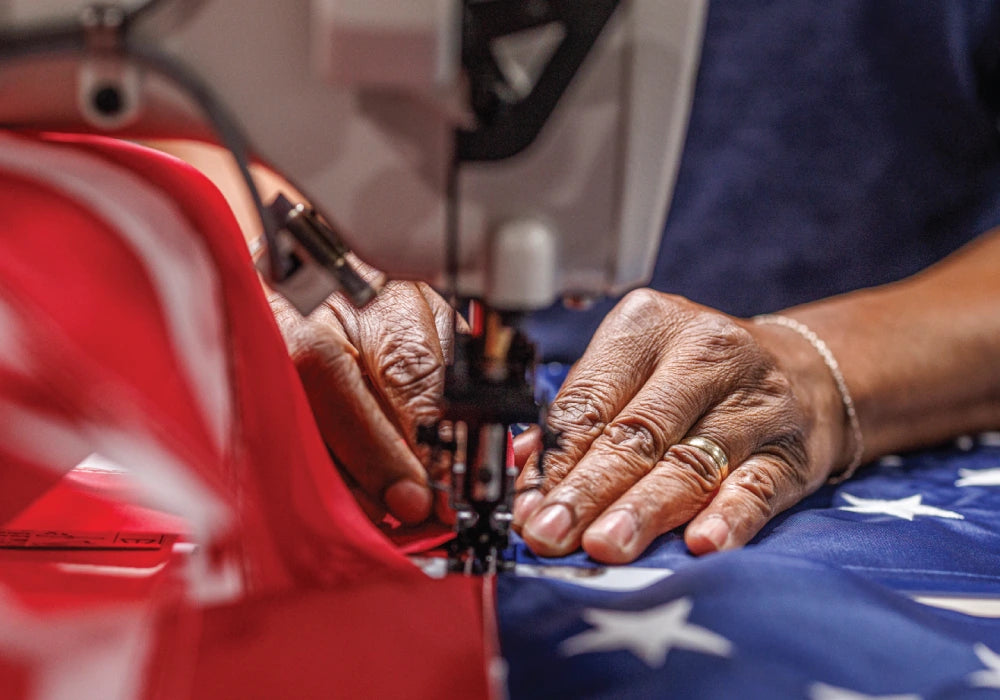January 14

1954
Marilyn Monroe married Joe DiMaggio. It was the ultimate All-American romance: the tall, handsome hero of the country’s national pastime captures the heart of the beautiful, glamorous Hollywood star. But the brief, volatile marriage barely got past the honeymoon before cracks began to show in its brilliant veneer and they divorced just 274 days after they were married. However, the two would remain close. When the 36-year-old Monroe died of a drug overdose on August 5, 1962, DiMaggio arranged the funeral. For the next two decades, until his own death in 1999, he sent roses several times a week to her grave in Los Angeles.


1970
Diana Ross and the Supremes performed their final concert. They were the most successful American pop group of the 1960s—a group whose 12 #1 hits in the first full decade of the rock and roll era places them behind only Elvis and the Beatles in terms of chart dominance. They helped define the very sound of the 60s, but like fellow icons the Beatles and Simon and Garfunkel, they came apart in the first year of the 70s. The curtain closed for good on Diana Ross and the Supremes at the Frontier Hotel in Las Vegas, Nevada.


1973
The Miami Dolphins achieved something no NFL team has repeated: a perfect season. The Dolphins held on to beat Washington 14-7 in Super Bowl VII, capping a 17-0 season despite a gaffe by kicker Garo Yepremian. With just over two minutes left, instead of going for it on fourth-and-4 in Washington territory, Don Shula had Yepremian attempt a 42-yard field goal. The kick was blocked, and Yepremian’s attempt to salvage the play resulted in a fumble, which cornerback Mike Bass returned 49 yards for a touchdown. The Dolphins were the first team to reach the Super Bowl with a perfect record. The second team to do so, the 2007 Patriots, rode an 18-game winning streak into Super Bowl XLII but lost that game, 17-14, to the New York Giants.
January 15


1929
Martin Luther King, Jr. was born in Atlanta, Georgia, the son of a Baptist minister. King received a doctorate degree in theology and in 1955 helped organize the first major protest of the African American civil rights movement: the successful Montgomery Bus Boycott. Influenced by Mohandas Gandhi, he advocated civil disobedience and nonviolent resistance to segregation in the South. The peaceful protests he led throughout the American South were often met with violence, but King and his followers persisted, and the movement gained momentum. In 1964, the civil rights movement achieved two of its greatest successes: the ratification of the 24th Amendment, which abolished the poll tax, and the Civil Rights Act of 1964, which prohibited racial discrimination in employment and education and outlawed racial segregation in public facilities. He was assassinated in Memphis, Tennessee, on April 4, 1968.

1972
“American Pie,”, an epic poem in musical form that has long been etched in the American popular consciousness, hits #1 on the Billboard charts. The story of Don McLean’s magnum opus begins almost 13 years before its release, on a date with significance well-known to any American who was alive and conscious at the time. Tuesday February 3, 1959, was the date of the plane crash that killed Buddy Holly, Ritchie Valens and J.P. “the Big Bopper” Richardson—a date that would be imbued with transcendent meaning by Don McLean when he labeled it “the Day the Music Died.”

2009
A potential disaster turned into a heroic display of skill and composure when Captain Chesley Burnett Sullenberger III safely landed the plane he was piloting on New York City’s Hudson River after a bird strike caused its engines to fail. David Paterson, governor of New York at the time, dubbed the incident the “miracle on the Hudson.” Sullenberger, a former fighter pilot with decades of flying experience, received a slew of honors for his actions, including resolutions of praise from the U.S. Congress. In October 2009, the now-famous pilot, known to his friends as “Sully,” published a book about his childhood, military background and career entitled “Highest Duty: My Search for What Really Matters.” The autobiography was adapted into the feature film "Sully," which was directed by Clint Eastwood and starred Tom Hanks as Captain Sullenberger III.
January 16

1919
The 18th Amendment to the U.S. Constitution, prohibiting the “manufacture, sale, or transportation of intoxicating liquors for beverage purposes,” is ratified by the requisite number of states. The movement for the prohibition of alcohol began in the early 19th century, when Americans concerned about the adverse effects of drinking began forming temperance societies. By the late 19th century, these groups had become a powerful political force, campaigning on the state level and calling for total national abstinence. In December 1917, the 18th Amendment, also known as the Prohibition Amendment, was passed by Congress and sent to the states for ratification.


1938
Benny Goodman performed at New York City’s famed Carnegie Hall. Goodman and his supporting cast claimed a new place for jazz on the American cultural scene that night, in what has come to be seen as the most important jazz concert in history. It would be another decade before anyone who was not in the audience or listening on the radio that night would hear the famed concert. All recordings of the show were presumed lost until a set of acetates were found in 1950. The album made from the recovered acetates became one of the first 33 1/3 LPs to sell over a million copies. The discovery of the studio master recordings led to multiple high-quality CD reissues of the legendary Carnegie Hall Jazz Concert.

1991
At midnight in Iraq, the UN deadline for the Iraqi withdrawal from Kuwait expired, and the Pentagon prepared to commence offensive operations to forcibly eject Iraq from its five-month occupation of its oil-rich neighbor. Operation Desert Storm, the code-name for the massive U.S.-led offensive against Iraq, was formally announced. U.S. Military Forces start one of the most intense air raids against Iraq. It was 44 days from the start of the air bombardment campaign until a cease-fire was signed. One hundred and twenty-five American soldiers were killed in the Persian Gulf War, with another 21 regarded as missing in action.
January 17

1916
At the invitation of Rodman Wanamaker, the son of the pioneering founder of Wanamaker’s department stores (now Macy’s), a group of golf professionals and several leading amateur golfers gathered at the Taplow Club in New York City, in a meeting that would result in the founding of the Professional Golfers Association (PGA). That October, the first annual PGA Championship took place at the Siwanoy Country Club in Bronxville, New York. In the years since 1916, the PGA has grown into one of the sporting world’s largest professional associations. Each summer, top golfers compete at a different outstanding course for one of golf’s most prestigious awards, the Wanamaker Trophy.

1953
A prototype Chevrolet Corvette sports car makes its debut at General Motors’ (GM) Motorama auto show at the Waldorf-Astoria Hotel in New York City. The Corvette, named for a fast type of naval warship, would eventually become an iconic American muscle car and remains in production today. During the second half of the 1950s, Corvettes began setting speed records on the racing circuit. The car also got a publicity boost when it was featured on the TV show “Route 66,” which launched in 1960 and followed the story of two young men driving around America in a Corvette, looking for adventure. In 1977, the 500,000th Corvette was built. Two years later, according to the Times, yearly Corvette production peaked at 53,807. In 1992, the 1-milllionth Corvette came off the assembly line in Bowling Green, Kentucky.

1994
An earthquake rocks Los Angeles, California, killing 54 people and causing billions of dollars in damages. The Northridge Quake was one of the most damaging in U.S. history. It was 4:31 a.m. when the 6.7-magnitude quake struck the San Fernando Valley, a densely populated area of LA located 20 miles northeast of the city’s downtown. The quake caused a huge amount of property damage over a wide area, especially in the beach community of Santa Monica, even though it was relatively far from the epicenter. As much of Santa Monica stands on soil that is less solid than bedrock, it suffered severe ground movement during the earthquake. The partial collapse of the Santa Monica freeway snarled traffic in Los Angeles for months. All told, it is estimated that the earthquake was responsible for $20 billion in damages.
January 18

1919
Leaders of the Allied powers—France, Great Britain, the United States and Italy meet in Paris to begin the negotiations that would officially mark the end of the First World War. For most of the conference, U.S. President Woodrow Wilson struggled to support his idea of a “peace without victory” and make sure that Germany, the leader of the Central Powers and the major loser of the war, was not treated too harshly. Other leaders wanted members of the Central power severely punished to justify the immense costs of the war. In the end, Wilson compromised on the treatment of Germany in order to push through the creation of his pet project, an international peacekeeping organization called the League of Nations.


1958
Hockey player Willie O’Ree of the Boston Bruins takes to the ice for a game against the Montreal Canadiens, becoming the first black hockey player to play in the National Hockey League (NHL). The Bruins sold O’Ree’s contract to the Los Angeles Blades of the Western Hockey League (WHL) the next season, and O’Ree spent most of the rest of his career out west, playing 11 years with the Blades and the San Diego Gulls and twice winning the WHL’s scoring title. After one season with the New Haven Nighthawks of the AHL, he went back to California. He took a two-year break from playing in the late 1970s, then returned for a final season with the Pacific Hockey League’s San Diego Hawks in 1978-79. He retired at the end of that season, at the age of 43, after a professional hockey career of 19 seasons and 10 teams.

1975
Barry Manilow scored his first #1 single with “Mandy." At the height of Barry Manilow’s popularity, none other than Frank Sinatra himself said of Manilow, “He’s next.” Yet even in his heyday, the more youthful arbiters of “cool” were not kind to him. They called Manilow’s music bombastic and schmaltzy, even as Americans devoured his every release. But critics may have missed the point. Barry Manilow never fancied himself hip or cool—far from it. “I have purposely tried not to stay in sync with the times,” he has said. “I just do what feels good.” After getting his start as Bette Midler's piano player and then musical director, he would go on to sell 75 million records. He amassed mre than 21 top-40 hits between 1975 and 1983, which earned him Billboard's top Adult Contemporary chart artist of all time.
January 19

1840
During an exploring expedition, Captain Charles Wilkes sighted the coast of eastern Antarctica and claimed it for the United States. Wilkes’ group had set out in 1838, sailing around South America to the South Pacific and then to Antarctica, where they explored a 1,500-mile stretch of the eastern Antarctic coast that later became known as Wilkes Land. During the 1930s, the United States, which led the world in the establishment of scientific bases, enacted an official policy of making no territorial claims of Antarctica while recognizing no other nation’s claims. In 1959, the Antarctic Treaty made Antarctica an international zone, set guidelines for scientific cooperation, and prohibited military operations, nuclear explosions, and the disposal of radioactive waste on the continent.

1972
36-year-old Sandy Koufax, the former Los Angeles Dodgers star, became the youngest player elected to the Baseball Hall of Fame. "This is the only thing that's made having to retire early a little easier," says Koufax, who retired at age 30. He was the most dominant pitcher in Major League Baseball from 1961-1965, winning three Cy Young Awards and the 1963 Most Valuable Player Award. He also led the league in ERA for five straight seasons, helping the Dodgers to three NL pennants as well as World Series titles in 1963 and 1965. Koufax was diagnosed with traumatic arthritis in his throwing arm in 1964, but played through constant pain. He entered the Hall alongside catcher Yogi Berra, who had famously said of Koufax’s 1963 season: “I can see how he won 25 games. What I don’t understand is how he lost five.”


1992
The "Nature Boy" Ric Flair became WWF champ at the Royal Rumble. It was the first of only two times in which the promotion's world championship was the prize of the Royal Rumble match. Ric Flair would go onto headline Wrestlemania that year and be voted Wrestler of the Year by both Pro Wrestling Illustrated and Wrestling Observer Newsletter.
January 20

1945
Franklin Delano Roosevelt, the only president to be elected to three terms in office, was inaugurated to his fourth—and final—term. With WW2 not yet won in 1944, Roosevelt was reelected to a fourth term. Three months after his inauguration, he died. Roosevelt’s unparalleled 13 years as president led to the 1947 passing of the 22nd Amendment to the U.S. Constitution, limiting future presidents to a maximum of two elected terms in office, or one elected term if the president already served more than two years of another president’s elected term.

1971
Marvin Gaye's "What's Going On?" was released. The song marked a turning point in Gaye's career and in the trajectory of Motown. Gaye, whose brother had recently returned from the war and whose cousin had died in it, referenced the violent rifts in American society and explicitly questions the war. The single reached number 2 on the Billboard Hot 100 chart and would go on to be named the fourth-greatest song of all time by Rolling Stone.

1973
Jerry Lee Lewis rocked the Grand Ole Opry. Years after he was known as “The Killer,” a rock pioneer who released such rock standards as “Great Balls of Fire” and “Breathless,” Jerry Lee Lewis made a name for himself in a very different musical genre: country. Jerry Lee put the full complexity of his musical background and colorful personality on display. “I am a rock-and-rollin’, country-and-western, rhythm-and-blues singing [expletive deleted]!” Lewis declared from country music’s greatest stage before launching into a rousing set that included all of the late '50s rock-and-roll classics he’d promised Opry officials not to play.






